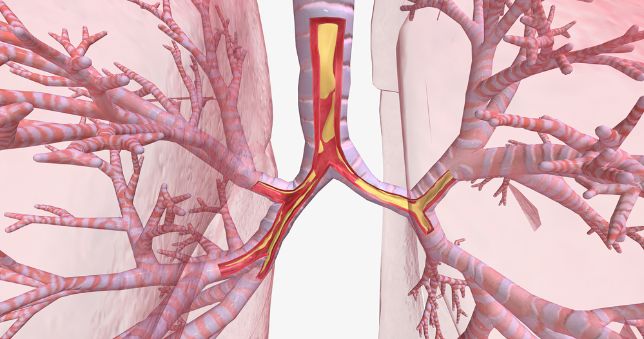There are a variety of symptoms that can occur in patients with respiratory muscles diseases, although shortness of breath is the most common symptom. This happens because a person’s body isn’t getting enough oxygen because of weakened breathing muscles. Breathing problems can also affect the way people eat and swallow.
Most of the time, shortness of breath is caused by a serious problem with the lungs or heart. However, some breathing problems can be caused by other health problems that aren’t caused by muscle disease.
Muscle weakness can affect the muscles that breathe, which can lead to breathing problems and sleep apnea. This is especially true in muscular dystrophy, where the muscle weakness can make it difficult for a person to breathe.
Respiratory muscles diseases are a group of disorders that cause muscle weakness and can also affect the skeletal system, which includes the lungs. These disorders include hereditary myopathy with early respiratory failure, polymyositis and dermatomyositis, and inclusion body myositis.
Hereditary myopathy with early respiratory failure (HMERF) is an inherited disease that causes weakness in the muscles needed for breathing, which can lead to breathing problems. The symptoms of HMERF are mainly shortness of breath and wheezing, but the disease can also cause a weakened cough and problems with swallowing.
Other types of muscle disorders can have symptoms of respiratory weakness, such as hereditary myopathy with late respiratory failure, sarcoglycanopathies and adenomyosis. The symptoms of these conditions are mainly shortness of breath and wheezing, which can also lead to breathing problems during sleep.

Symptoms of respiratory muscle weakness may be subtle and can progress insidiously over months or years. Dyspnoea on exertion is often the earliest symptom of pulmonary failure, and can be confused with other pulmonary symptoms such as chest pain or choking episodes.
Tachycardia and hypercapnia are two other signs of insufficient ventilation that can be present in patients with respiratory muscle weakness. This can be caused by a change in how the diaphragm works or by changes in the intercostal muscles.
In some cases, the muscles involved in breathing can get so weak that they stop working altogether, which is called respiratory failure (RF). Usually this occurs because the lungs aren’t getting enough oxygen.
This can be very dangerous and may require immediate medical attention. It’s important to get to the root of the problem so that it can be treated quickly and effectively.
Symptoms that can occur in hereditary myopathy with late respiratory failure, polymyositis, and dermatomyositis are mainly shortness of breath and wheezing, and the disease can also cause a weakened lung cough and problems with swallowing.
Some of these symptoms can be worse at night. This can happen because the muscles that support the breathing during sleep are weakened, so they stop working.
Treatment for respiratory muscle weakness depends on the patient’s age and the severity of the condition. It can include a combination of physiotherapy and devices to help with the breathing.








